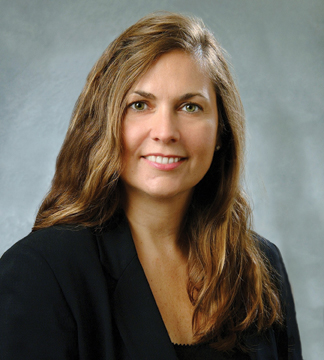 1. The humor on Comedy Central seems to be designed for guys 18 to 34. How do you fit into that?
1. The humor on Comedy Central seems to be designed for guys 18 to 34. How do you fit into that?
Even though I’m a much older woman, somewhere deep inside I do actually have the comic sensibility of an 18-year-old boy. Everyone teases me about it. I like the sort of irreverent, challenging comedy that makes you just a little bit uncomfortable. It’s what makes me laugh.
2. You’ve tended to push the envelope in terms of content with shows like The Sarah Silverman Program and Reno 911! How do you know what you can get away with?
Part of it is a gut feeling. We’re somewhat of an equal opportunity offender, so I think that we try not to let any of our own personal values get in the way of making those decisions. If there’s a satirical statement being made, if we’re trying to bring up a bigger issue, and if it’s smart, it usually sits okay with me. There are definitely things that occasionally will make you uncomfortable, but we do have standards and practices that go through all of our material and make those judgment calls every day.
3. Comedy Central does a lot of live broadcasts like roasts and stand-up performances. How does a director capture the energy and immediacy that’s so important to those kind of events?
They use a lot of cameras. [laughs] More and more, those shows have become extravaganzas in terms of the numbers of cameras so that in essence they’ve got it all in front of them and we walk away with a line cut of every stand-up show we shoot, and certainly the roasts as well. But then there’s a lot of it that’s coming together in post too.
4. Do you think anyone can direct comedy?
No, absolutely not. Comedy is really, really hard. There’s so much about point of view and timing. And so much of the comedy comes in the reaction shot rather than in the shot you’re shooting, and you need to be able to understand all of that. My favorite kind of comedy is usually the kind that’s coming out of character, so it’s less about the actual punch line than all of it working as a whole. I think it takes a really focused director with confidence and a real sense of humor to be able to direct a great comedy.
5. You’re always looking for new talent for Comedy Central; does that apply to directors as well?
When we look for comedy, we look at it from all angles. A lot of the time it’s about the [performer] because we love to develop shows around a particular point of view. That’s what cuts through and makes a lot of noise for our channel. But [we’re looking] also on the directing and writing side. With the multitude of production that’s going on for the Internet, we find so much talent every day that’s coming from there. We have scooped up direct short form projects as well as pilots and episodics. Two directors come to mind who we probably first caught sight of in their short directing, now we’re developing a feature with one of them and they’ve done episodic television for us.
6. When you do original digital programming, is it always related to something that’s already on the network?
On ComedyCentral.com it usually is. But on [our other website] Atom.com there is original digital programming that’s unrelated to anything on television. Production companies come in, they pitch ideas just like they would at a television network, and a much smaller, scaled-down version of development happens, and then a number of episodes within a series is ordered.
7.How do you monetize that?
Both ComedyCentral.com and Atom.com are advertiser-based, so there’s a certain amount of money [from that]. Ad sales, banner ads and pre-rolls are all a part of the business of the digital platform. But again, everything is done much less expensively than it would be for the television networks.
8. So do all roads lead to television?
It still drives the business and for me it certainly does. The people who are responsible for just the digital platforms, absolutely not. That is their business. But for me, yes. Everything is ultimately done with an eye toward a successful franchise on the television.
9. Are changes in comedy a reflection of what’s going on in society at large?
One of the things we discovered is that Gen Xers and Gen Yers are very different in their comedic points of view. It used to be that tragedy plus time equals comedy and now tragedy is comedy. People used to need big, long setups and now they just want punch lines. That’s what younger generations are looking for. But the one thing I will say about comedy is, I don’t think you can ever predict it. There are trends people try to follow and that never works. So I think it’s always original comedy that’s successful. The other thing about comedy is that it’s completely subjective, and you never know what’s going to take off. So it’s never only about one style of comedy. For us, it seems to have found a sweet spot in programming with a single point of view and focus that’s expressed in short form via sketch and also through narrative with shows like Sarah Silverman. Comedy evolves over time. But I can’t personally tell you where it’s going.
10. Since this is our comedy issue and I’ve heard that you used to be a big fan of pro wrestling, who would win if you put Jon Stewart and Stephen Colbert in the ring together?
[laughs] Man, Sophie’s Choice. I’ll say Stephen is a larger man, but Jon is scrappy. I’ll call it a draw.